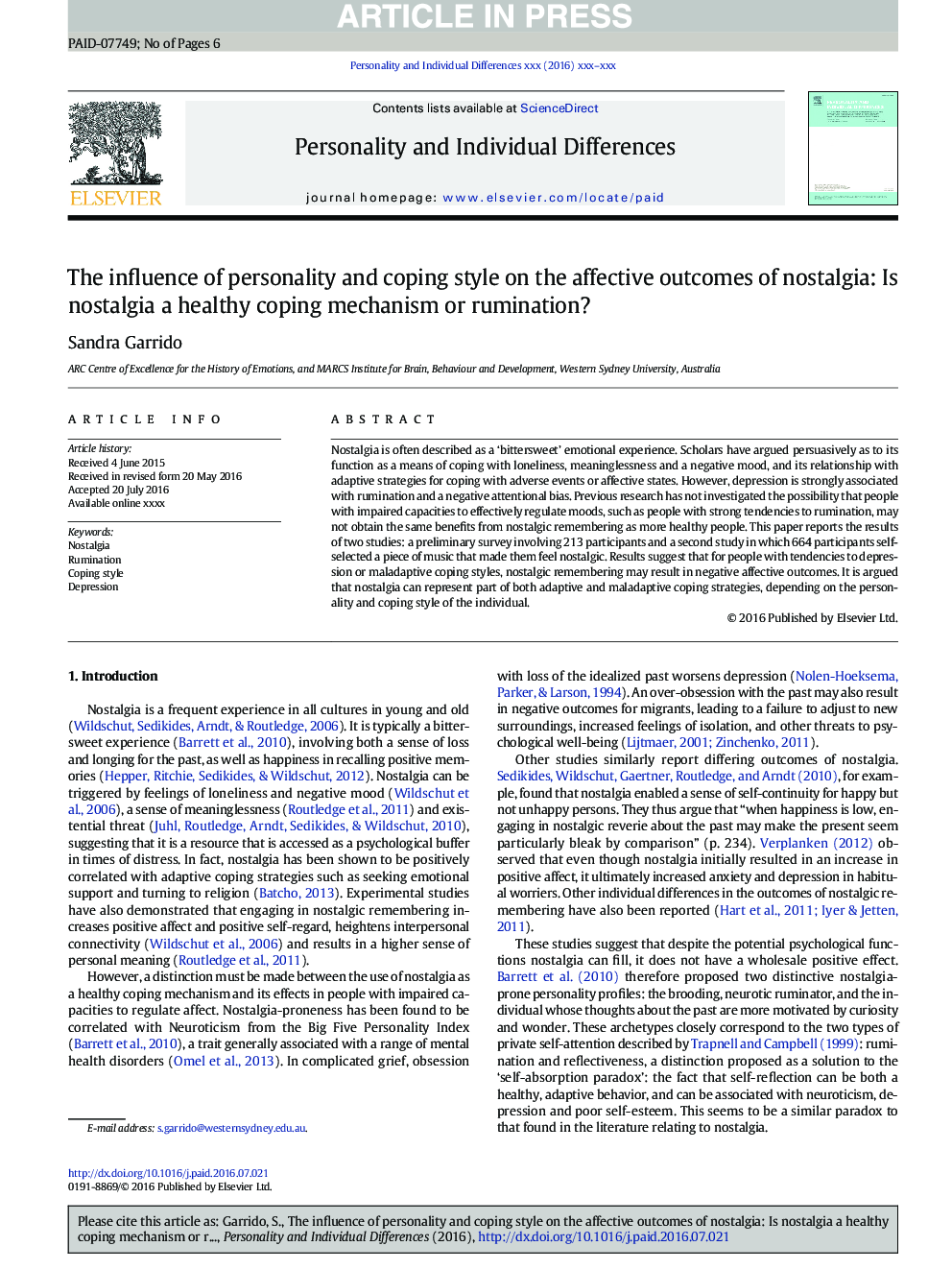| Article ID | Journal | Published Year | Pages | File Type |
|---|---|---|---|---|
| 5035547 | Personality and Individual Differences | 2018 | 6 Pages |
Abstract
Nostalgia is often described as a 'bittersweet' emotional experience. Scholars have argued persuasively as to its function as a means of coping with loneliness, meaninglessness and a negative mood, and its relationship with adaptive strategies for coping with adverse events or affective states. However, depression is strongly associated with rumination and a negative attentional bias. Previous research has not investigated the possibility that people with impaired capacities to effectively regulate moods, such as people with strong tendencies to rumination, may not obtain the same benefits from nostalgic remembering as more healthy people. This paper reports the results of two studies: a preliminary survey involving 213 participants and a second study in which 664 participants self-selected a piece of music that made them feel nostalgic. Results suggest that for people with tendencies to depression or maladaptive coping styles, nostalgic remembering may result in negative affective outcomes. It is argued that nostalgia can represent part of both adaptive and maladaptive coping strategies, depending on the personality and coping style of the individual.
Related Topics
Life Sciences
Neuroscience
Behavioral Neuroscience
Authors
Sandra Garrido,
